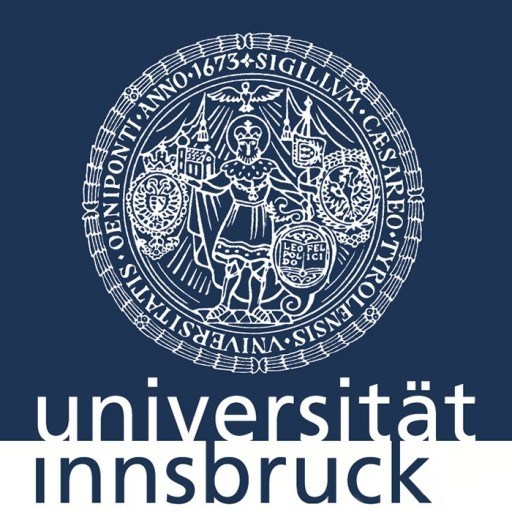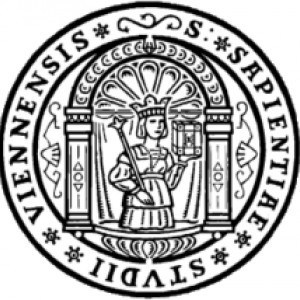Photos of university / #uniinnsbruck
The Bachelor's degree program in Pharmaceutical Sciences at the University of Innsbruck offers students a comprehensive education in the fundamental principles and practices of pharmacy and related pharmaceutical disciplines. This program is designed to equip students with the necessary knowledge and skills to contribute effectively to the development, production, quality control, and safe use of medicines and pharmaceutical products. Throughout the course of study, students explore various core areas such as pharmacology, medicinal chemistry, pharmaceutics, pharmacokinetics, and pharmacodynamics, providing a solid scientific foundation for understanding how drugs interact with the human body and how they can be formulated and delivered effectively. The program also emphasizes laboratory work, practical training, and internships to ensure that students gain hands-on experience in pharmaceutical laboratories, research facilities, and industry settings.
In addition to technical expertise, the curriculum aims to develop essential soft skills including problem-solving, critical thinking, communication, and teamwork, which are vital for successful careers in the pharmaceutical sector. The program is tailored to meet the current demands of the healthcare and pharmaceutical industries, preparing graduates for diverse career paths such as pharmaceutical research and development, quality assurance, regulatory affairs, clinical trials, and pharmacy practice. Students also have opportunities to participate in interdisciplinary projects and collaborate with industry partners, fostering innovation and practical understanding of the subject matter.
The University of Innsbruck’s Pharmaceutical Sciences program emphasizes a strong scientific approach combined with an appreciation for ethical considerations and the societal impact of pharmaceuticals. Graduates of this program will be well-positioned to pursue further studies or enter the workforce in a rapidly evolving field that plays a crucial role in healthcare worldwide. The program’s structure, with a mix of theoretical instruction, practical applications, and research activities, ensures that students graduate with a well-rounded education capable of meeting the challenges of modern pharmaceutical sciences.
Compulsory Modules
- Scientific Core Skills
- Analysis and Critical Exploitation of Own Research Results
- Diskussion of Current Research Results
- Presentation of Own Research Results
- Generic Scientific Skills
- Doctoral Thesis Defense
Dissertation
The dissertation is a piece of scientific work which serves to prove the student's ability to cope with scientific questions in an independent way.
The dissertation topic must be chosen from the field of pharmaceutical sciences or be closely related to these fields.
The dissertation may be submitted as thematically and/or methodically related articles. The quality criteria specified in the curriculum apply.
The student has to nominate a team of supervisors, comprised of at least two supervisors (dissertation committee). One of the supervisors is named as responsible main supervisor (holder of a “Venia docendi”, a university teaching authorization). With the exception of the main supervisor, supervisors can also come from subject-related fields. In exceptional cases only one supervisor can be nominated.
Prior to beginning the work, the student has to communicate the dissertation topic and the names of the supervisors to the Director of Studies in writing. Topic and supervisors are considered as accepted, if the Director of Studies does not veto them by means of a decree within one month after the receipt of the proposal.
Requirements
- Completed a master's degree in a relevant related field.
- Proof of German language ability (level B2)
- Curriculum vitae,
- As well as (originals or officially certified copies):
- Notice (“Bescheid”) confirming awarding of bachelor’s degree,
- Diploma certificate,
- Diploma Supplement
- Transcript (list of examinations completed).
- Examination Records
- Recognition of exams
- Declaration of Academic Honesty
- Submission of the Dissertation
- Application for the Dissertation's Defense
Finnancing for the Pharmaceutical Sciences Bachelor's degree program at the University of Innsbruck is primarily structured through a combination of standard Austrian university funding options, including state-funded subsidies, tuition fees for non-EU/EEA students, and additional financial support mechanisms. As an officially recognized public university, the University of Innsbruck benefits from the Austrian higher education funding system, which offers subsidized tuition rates for resident students and financial aid opportunities. For students enrolled from Austria or the European Union/European Economic Area, tuition fees are generally low or waived; however, non-EU/EEA students are required to pay tuition fees, which are set annually by the Austrian government and the university.
Additionally, numerous scholarship opportunities are available through national and regional programs, including the Austria Agency for International Cooperation in Education and Research (OeAD), which administers various scholarships for international students. Students are encouraged to seek scholarships based on academic merit, financial need, or specific eligibility criteria such as country of origin or field of study. The university also offers Erasmus+ mobility grants, allowing students to undertake part of their studies abroad and receive financial support for living and travel expenses.
Students may also explore external financial aid options through private foundations and organizations dedicated to supporting students in health sciences. Part-time employment during studies is a common practice among students, and the university's location in Innsbruck provides access to student job opportunities in the local economy.
It is important for prospective students to research and apply early for available scholarships, grants, and financial aid to ensure comprehensive planning of their educational finances. The university's administrative offices and the student services center offer detailed guidance on available funding options, application procedures and deadlines. Budgeting for living expenses, textbooks, health insurance, and other study-related costs is also recommended, with estimates indicating that students should plan for a monthly living budget that covers accommodation, food, transportation, and personal expenses.
In conclusion, financing the Pharmaceutical Sciences program at the University of Innsbruck involves a multifaceted approach combining government-funded tuition schemes, scholarships, mobility grants, and personal financial planning. Students are advised to actively seek and apply for financial support opportunities early in their academic cycle and consult university resources to optimize their financial planning for their studies.
The Bachelor's degree program in Pharmaceutical Sciences at the University of Innsbruck offers students a comprehensive education in the fundamental and applied aspects of pharmacy and pharmaceutical research. This program is designed to prepare graduates for a variety of careers within the pharmaceutical industry, healthcare, research institutions, and regulatory bodies. Throughout the course of study, students acquire knowledge in medicinal chemistry, pharmacology, pharmaceutics, pharmaceutical technology, and pharmaceutical analysis, combined with a solid foundation in biology and chemistry. The curriculum emphasizes practical skills, including laboratory techniques, drug formulation, quality control, and regulatory affairs, ensuring graduates are well-equipped to meet the demands of the pharmaceutical sector.
The program aims to foster a multidisciplinary approach, integrating scientific principles with practical applications to develop innovative pharmaceutical solutions. Students have opportunities to engage in research projects, internships, and collaborations with industry partners, which are crucial for gaining real-world experience and networking within the field. The program also emphasizes ethics, patient safety, and the societal impact of pharmaceuticals, preparing students for responsible professional roles.
Courses are taught by experienced faculty members with expertise across various domains of pharmaceutical sciences. The program is structured to balance theoretical coursework with hands-on laboratory work, enabling students to develop critical analytical and problem-solving skills. Additionally, the program incorporates modern technology and e-learning components to enhance student engagement and learning efficiency.
Graduates of the Bachelor's program in Pharmaceutical Sciences are eligible to pursue further studies at the master's level or enter the workforce directly. Many find employment in pharmaceutical companies, research laboratories, hospital pharmacies, regulatory agencies, and other healthcare-related sectors. The program's emphasis on interdisciplinary training and practical skills ensures that graduates are prepared to contribute effectively to advancements in pharmaceutical science and healthcare. Overall, the program at the University of Innsbruck aims to develop competent, responsible, and innovative pharmaceutical scientists ready to address current and future challenges in the pharmaceutical industry and healthcare systems.

